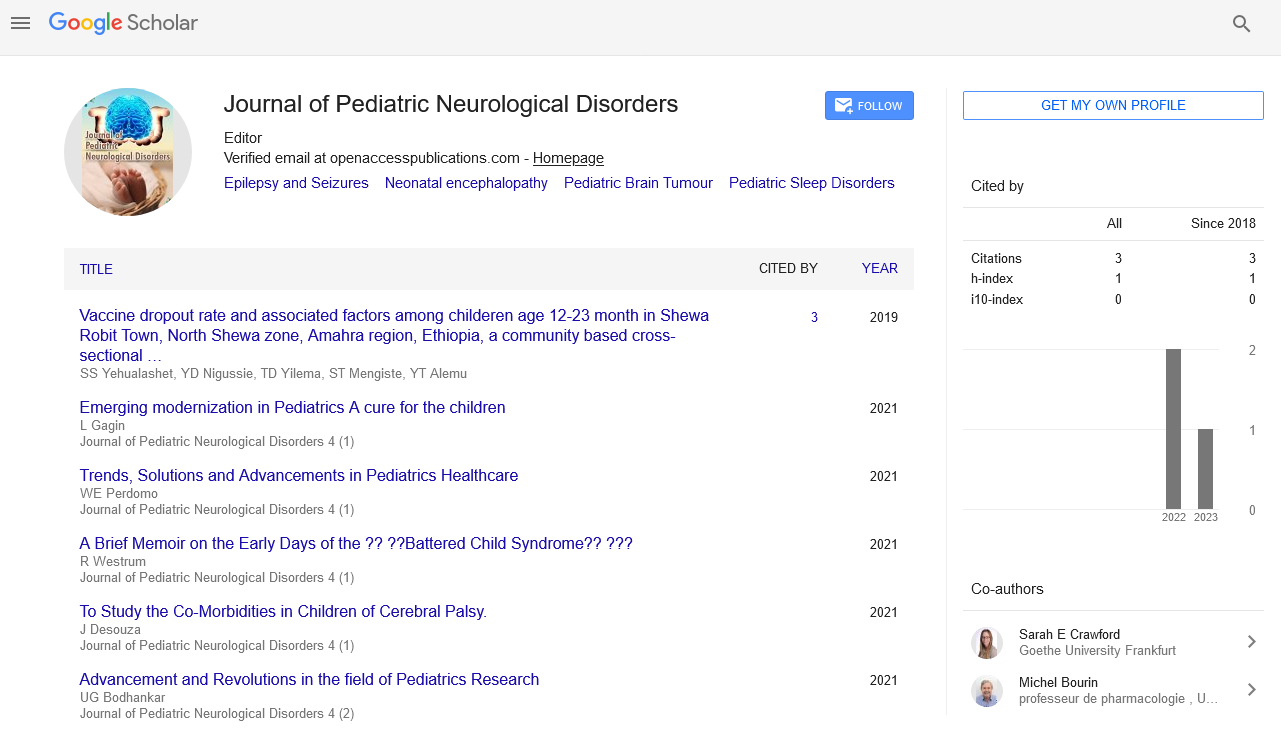Research Article - Journal of Pediatric Neurological Disorders (2021) Volume 4, Issue 1
A Brief Memoir on the Early Days of the Battered Child Syndrome
Ron Westrum
Eastern Michigan University
Abstract
Many years ago (1978-1979) I was lucky enough to spend time at the University of Edinburgh as a guest of its Science Studies Unit. While I was there, I audited a course taught by Professor John Mason called “Forensic Medicine for Lawyers.” As a fan of “Sherlock Holmes” this sounded fascinating. With permission from Prof. Mason, I sat in on his course. During one lecture Mason mentioned the work of C. Henry Kempe, on child abuse. He discussed a program that Kempe had started to identify mothers who might have low bonding with their infants, putting the babies at risk for child abuse. In hospital he got nurses to identify these mothers with low bonding, and to them he offered a course about what they could and could not expect with their newborns. This course, I was told, reduced the amount of child abuse for the mothers who got it. I put this fact aside for the moment. But then, when I returned to the USA, I interviewed a number of American pioneers who had responded to early reports of child abuse. The interviewees included Dr. Kempe himself, whom I met while on another visiting appointment, at the University of Hawaii. As well there were several others who appear in the account below. The following memoir was written while in Honolulu in 1984. Since it contains some details of original research, I thought it might interest the readers of this journal.
Publication:
1. The study of information flow: A personal journey.
2. Can we anticipate disasters?.
3. A typology of resilience situations
Biography
Prof. Emeritus Ron Westrum is continuing his studies into information flow by reading up on the life and crimes of Jimmy Savile, British entertainer, talk show host and serial sex offender. Ron got interested in Jimmy Savile when he discovered that for most of Savile’s life, even those who knew him well did not suspect that he was a dangerous sex offender. Savile, who was friends with police officers, and close to the Royal Family, covered his tracks very well. After his death, people began to talk about Savile had done to them, and very much like Bill Cosby, the outpouring of victims’ stories encouraged others to come forward. The British have done several major reports on Savile, the one from the BBC is over 1,000 pages. Earlier Prof. Westrum had collected a large number of newspaper clippings about abuse of children by Catholic priests, and eventually will publish something out of that research. The most interesting conclusion is that the church, by choosing to “encapsulate” the information about abuse, deferred public scrutiny but also impaired its own ability to learn about and cope with the problem.

